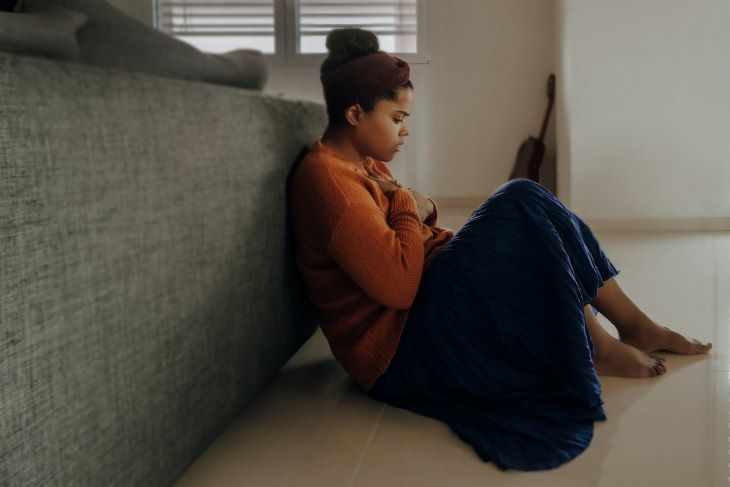Drug & Alcohol Rehab in Galloway
When addiction strikes, it is pivotal that an individual begins rehab as soon as possible to make a full recovery. While drug and alcohol rehab is incredibly effective and is the only way for an individual to fully break away from their addictive cycles of behaviour, many who struggle do not try and get help.
This is the case for many reasons, one of which is that individuals who struggle with addiction find that they are overwhelmed by the prospect of beginning treatment.
There can be a lot to think about, and without the right support, the process of looking for and engaging with suitable rehab programmes can feel impossible.
At OK Rehab, we understand what a huge problem this is, and that’s why we want to help by shedding some light on some of the most common concerns when it comes to drug and alcohol rehab.
Different Kinds of Rehab Programmes

The first step of beginning addiction recovery is assessing what kind of programme will be most suitable for an individual’s situation. In each case, the personal circumstances an individual finds themselves in will determine what kind of treatment they need.
Figuring this out is commonly done with the help of a doctor or GP when an individual gets in touch with them.
A medical professional will take a look at the details of an individual’s situation and point them in the right direction of a suitable rehab programme. The choice is usually between outpatient and residential rehab.
1. Outpatient
For individuals who have limited symptoms, outpatient rehab programmes offer them the opportunity to return home between sessions and continue seeing family and working if they can.
2. Residential
For individuals with severe symptoms that impair their ability to look after themselves, residential rehab programmes offer them accommodation throughout the recovery process, ensuring that supervision and support are always on hand for a safe and effective rehab.
For more information about Drug and Alcohol Rehab in Galloway, call 0800 326 5559.
Treatment: What Does Rehab Involve?

Once an appropriate rehab programme has been decided on and an individual is enrolled, they will then begin the process of recovery, but what does this involve?
While there is variation in the formats of rehab, the fundamental components of treatment tend to be consistent in all cases. At the core of helping an individual overcome their addiction, there are usually the same two methods: detoxification and therapy.
1. Detoxification
The first objective of rehab is to help an individual overcome their physical dependency on a substance, and it aims to do this via detoxification.
As an addiction develops, an individual’s body begins to rely more and more on the consumption of a certain substance. It reacts adversely when the substance is absent, so ending an addiction feels almost impossible.
Detoxification looks to help this problem by gradually reducing the amount of a substance the body receives. Through this tapering off of consumption, the body is slowly weaned until it can withstand receiving none of a substance at all.
2. Therapy
Addiction is not just about physical dependency, however. In many cases, individuals find that their minds are equally hooked on substance abuse, seeing their consumption as a normal and necessary part of their routine rather than a problem.
This mindset can prove detrimental when detoxification is completed, so rehab uses therapy to try and change how an individual thinks and make them see their addiction more realistically [1].
Cognitive Behavioural Therapy (CBT), for example, is a very popular method of helping individuals identify their addictive triggers and work through them in healthier ways.
For more information about Drug and Alcohol Rehab in Galloway, call 0800 326 5559.
The Fear of Relapse

The ultimate goal of rehab is to aid an individual so that they can return to their everyday lives without needing to rely on a certain substance anymore. When this is achieved, however, it does not necessarily mean that the risk has passed.
Many who leave rehab struggle with relapse in the first few weeks and months [2]. Without the constant support of medical professionals, many individuals find it hard to handle the pressures of everyday life, and so consider falling back into their addictive patterns to cope.
To try and prevent this, many rehab programmes offer aftercare services which look to extend the support of rehab beyond structured treatment. This can involve individuals attending counselling or support group sessions, or learning skills and techniques for handling their cravings.
For more information about Drug and Alcohol Rehab in Galloway, call 0800 326 5559.
The Importance of Safe Rehab

It cannot be understated how necessary it is for an individual to undergo proper drug and alcohol rehab when they are facing addiction.
While an individual may want to break away from their addiction and think that they have the strength and commitment to do it on their own, it might not be safe.
When an individual stops their substance use, their body reacts, sparking withdrawal symptoms. These can range from headaches to intense nausea, and in the case of alcohol addiction, they can even be deadly. Those who attempt detox without the correct support, therefore, are very much at risk.
As a result, addiction recovery should only be attempted with the support and supervision of medical professionals within a dedicated rehab programme. When an individual encounters withdrawal symptoms, this kind of care ensures that not only is an individual’s progress not compromised but that their health and wellbeing is not seriously threatened as well.
For more information about Drug and Alcohol rehab in Galloway, call 0800 326 5559.
Personalised Care

While the fundamentals of drug and alcohol rehab are widely the same with all recovery processes, each programme and facility will have a slightly different approach when it comes to treatment.
Different people can respond to alternative styles of support, and so there is a wide range of facilities out there that can vary in how effective they are for you.
For example, while some individuals may benefit from a minimalistic approach, placing emphasis directly on the cause of addiction and working to make progress on that specific point, others may find that a holistic treatment facility is better for them, granting them the freedom to utilise a range of treatment methods and recreational activities during recovery.
When deciding on the kind of treatment they require, each individual must determine what they want from rehab, as well as what kind of approach they think they will respond positively to.
It is also important to note the funds one has available, as different styles of rehab will vary in price.
For more information about Drug and Alcohol rehab in Galloway, call 0800 326 5559.
Getting Support From OK Rehab

If you are considering drug and alcohol rehab and need support, get in touch with us at OK Rehab. We can help.
It can be frightening to think about addiction treatment, and trying to find rehab in the Galloway area can feel overwhelming.
But when you contact us, we can help find the right programme for your situation and make sure that you feel confident about taking the next steps towards a healthier lifestyle.
Statutory-Funded Addiction Programmes Near Galloway
Here are a few options near you.
1. Relationships Scotland
Address: 11 Nith Ave, Dumfries DG1 1EF
Telephone: 01387 251245
Website: http://www.rsdg.org.uk/
2. SWS Alcohol and Drugs Support
Address: King St, Castle Douglas DG7 1DT
Telephone: 01556 503550
Website: http://www.adssws.co.uk/
3. Addaction
Address: 79 Buccleuch St, Dumfries DG1 2AB
Telephone: 01387 263208
In addition to this, there are more helplines such as Mind UK, YoungMinds, Rethink Mental Illness, Samaritans, Papyrus and SMART Recovery that will also help with your recovery.
Alternatively, find an Alcoholics Anonymous, Narcotics Anonymous or Cocaine Anonymous near you. The NHS are also there to help you.
Get in touch with us today by calling 0800 326 5559.
We offer addiction support across Galloway, including Annan, Beeswing, Borgue, Castle Douglas, Dalbeattie, Dumfries, Eastriggs, Gatehouse of Fleet, Glencaple, Glenluce, Gretna, Kirkcudbright, Langholm, Lockerbie, Moffat, Newton Stewart, Port William, Portpatrick,Sanquhar, Stranraer, Thornhill, Whithorn, Wigtown and more.
References
[2] https://www.ncbi.nlm.nih.gov/pmc/articles/PMC1976118/





